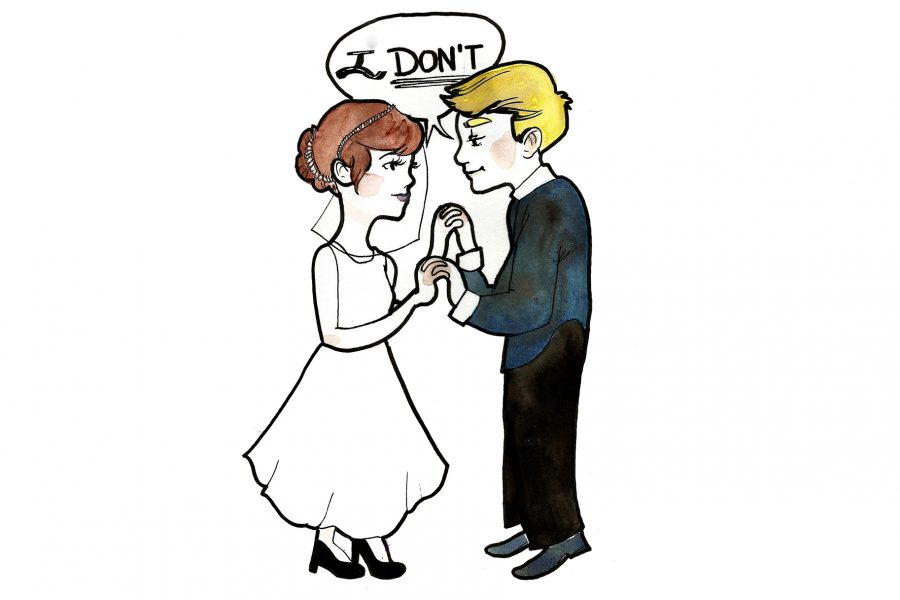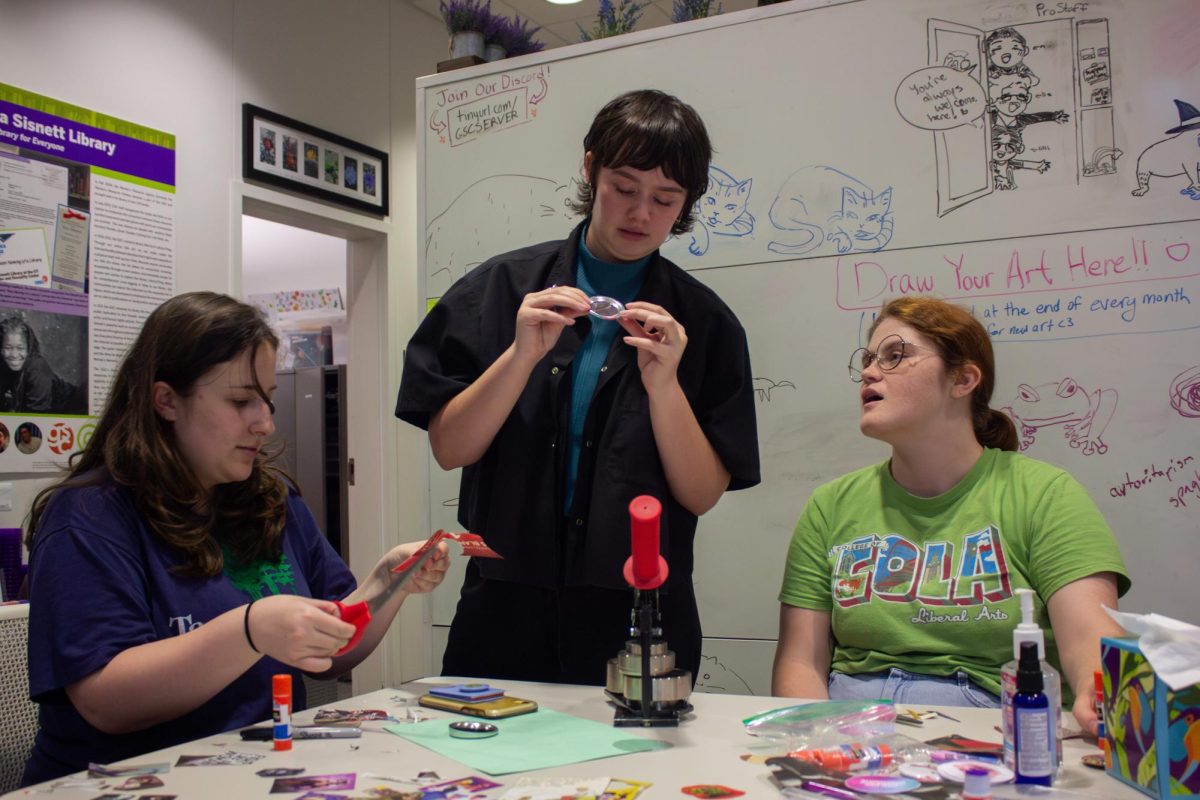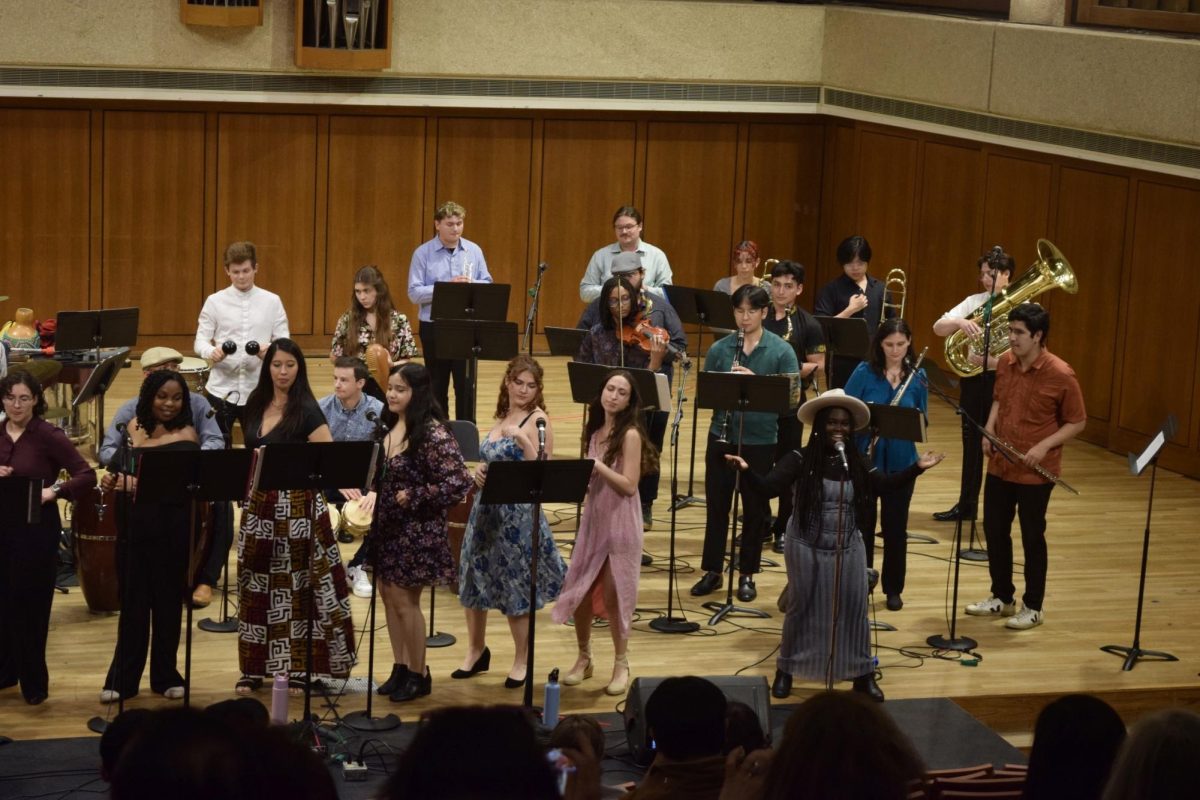First comes love, then comes marriage — but for millennials, this may not be the case.
When considering marriage, the younger population tends to wait longer than their parents or grandparents did to tie the knot. A study by the Pew Research Center revealed that in the last 50 years, the median age at first marriage has risen about six years for both men and women. From the study, it is unclear why those in the younger generation are deciding to hold off on marriage. However, the responses suggest the notion of marriage has become less of a priority for many millennials. Almost four in 10 American adults believe marriage has become obsolete.
Sharing the same idea, Sharon Joseph, a rhetoric and writing senior, said the idea of getting married in the near future is far from ideal.
“I’m uncomfortable with [the idea],” Joseph said. “I’m not sure why I have the impression that a marriage will weigh me down, but I’d like to be selfish and independent for a few more years.“
While it may be easy to accuse the “hookup culture” for causing the commitment issues in the younger generation, the delayed marriages may be just a way for millennials to be more careful with their future. The Pew Research Center notes that 50 years ago, couples were quick to walk down the aisle due to heavy emphasis on marriage and starting a family. Now, adults are more cautious of the perils of divorce and are eager to establish their own lives before settling down.
“We have heard how divorce rates have been very high,” Joseph said. “Taking the time to figure one’s self out in their youth is important. I believe this will lead to a stronger and more fulfilling marriage if one decides to settle down in the future.”
Even though the majority of the younger generation is deciding to wait longer than their grandparents to get married, some individuals adhere to the more traditional timeline. Education junior Melissa White recently married her husband, Parker, at the age of 21. While her marriage may not be common among her peers, White said her decision to get married was a good one, regardless of how early it may seem to others.
“Parker and I are rare,” White said. “I would definitely argue that [marrying young] isn’t for everyone, but if you find someone who just lines up with you like Parker does for me, then you can make it work.”
In a society that prioritizes establishing a career and independence, marriage is beginning to be seen as a hindrance to living life to the fullest. Since her engagement, White has received comments of concern, worried that she may be missing out on her youth — what may be considered the prime of her life. White said her married life has been everything but restricting.
“For me, I’ve gained everything,” White said. “I’ve gained security — time to explore life as a married couple without having to worry about having kids immediately. I get to do all of these new things with my best friend.”
The focus of the youth in America has shifted away from establishing a family and moved toward establishing identity. Marriage should be a decision made by those in the relationship, not by the guidelines set by a societal trend. White said while her early marriage is not normal, it was the best decision for her and her husband.
“I think there are so many benefits to being married at a younger age, but it really depends on the person and what they want in order to make it work,” White said.





















